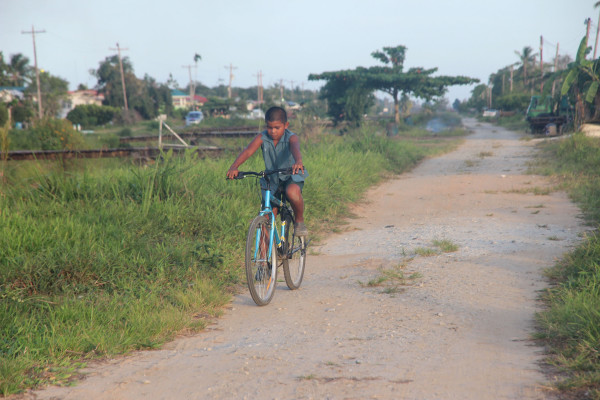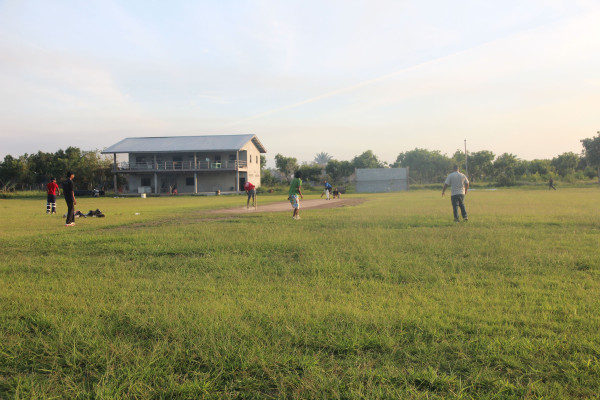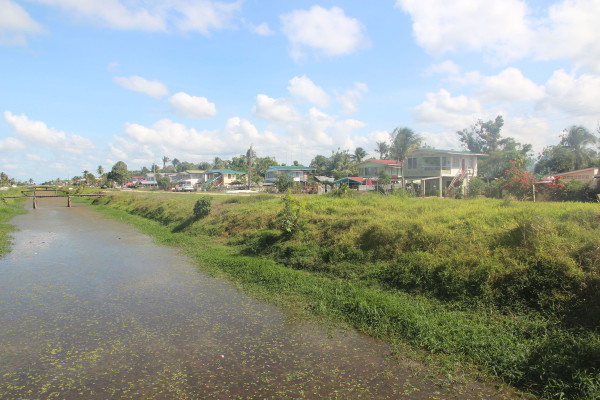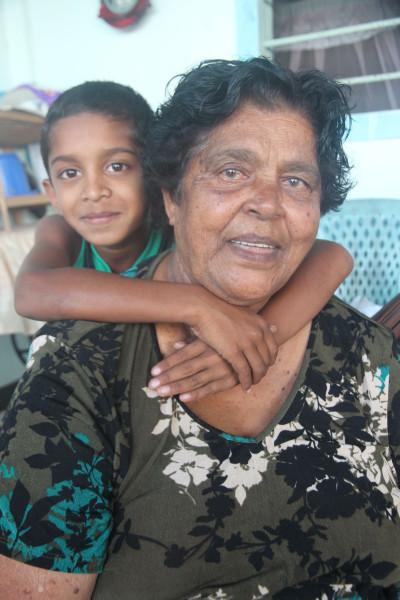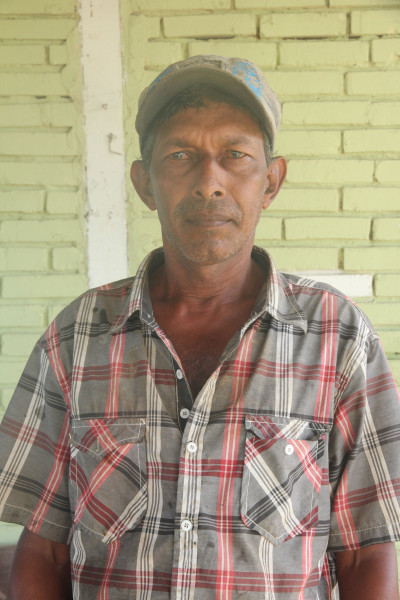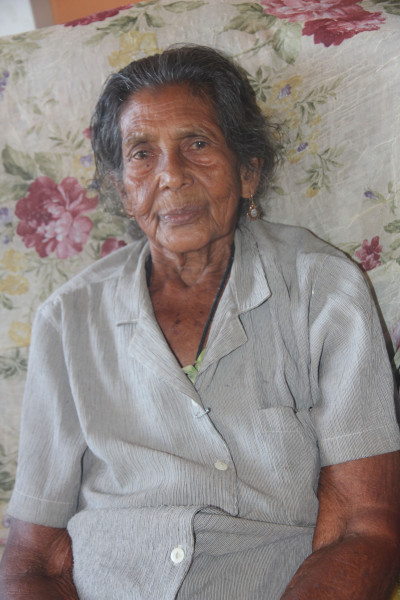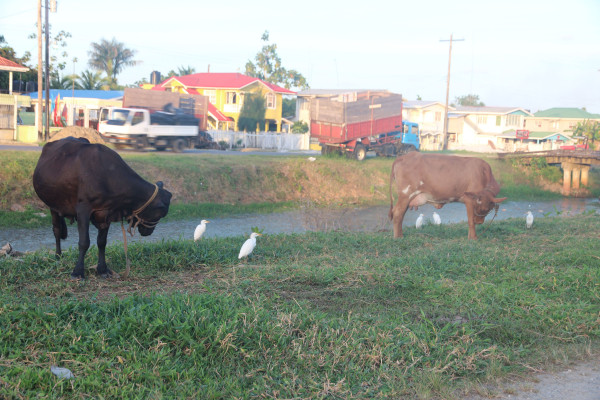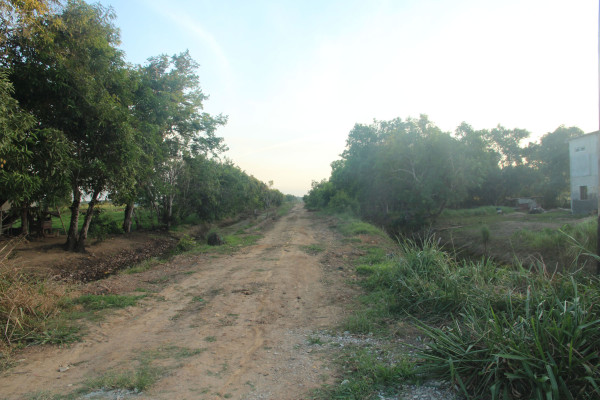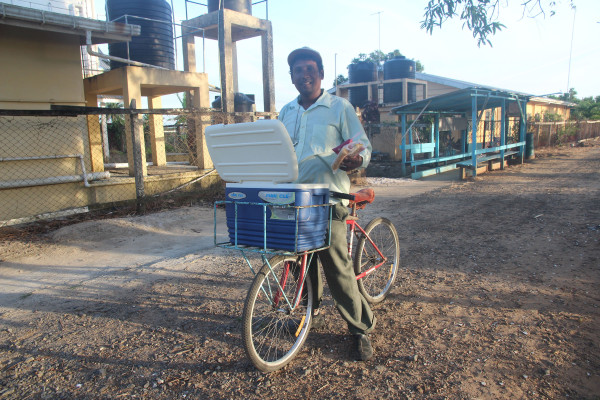Sprawled along a dam running parallel to the Canal Number Two Public Road is the village South Section. The village, which ends at the conservancy dam, has a population of approximately 2,000 residents.
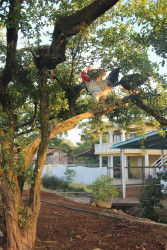
The villagers are mostly of East Indian descent but come from different religious backgrounds. South Section has two churches, a mosque, a temple, the Kawall Nursery and Primary schools, the Canal Number Two NDC and a health centre. The main occupation is farming.
The World Beyond Georgetown caught up with farmer Dhanraj Shivcharan just as he was headed out to have a drink with a few of his buddies.
Shivcharan, a former postman, left his job to take up farming full time as he saw it to be more profitable. Born and raised in South Section, Shivcharan said his grandparents who came to Guyana from India settled there many years ago. Growing up meant a life spent in the backdam. He toiled beside his parents and grandparents and sought time for pleasurable things to do also. “We used to go and picnic in the backdam. We went fishing. We used to plant farm and catch fish same time,” said the 52-year-old man, reminiscing about boyhood days. He attended the Kawall Primary School situated not so far away from his home.
His farm extends from beyond his house into the backdam. He plants celery, pumpkin, cucumber and calaloo which he sells wholesale to vendors from Canal Number Two. According to him, the present government had a koker constructed last year. This sluice, situated half a mile into the backdam allows for fresh water access to the farmlands. Shivcharan said he and other farmers would be grateful to have widened, the track they use to take their tractors to the backdam.
Before he takes his leave to meet his friends, he said, “South Section has understanding people. It is quiet here. Everybody understand everybody. The village is free of crime.”
Along the dam a few residents have gathered under a shed; they are having a ‘gaff.’ They said it would be better to talk with an elderly resident.
Parbattie Mohabir is 82 years old and does not remember much. At the time of our meeting, she was visiting with the neighbour of her son. Mohabir lives a little distance away but takes the short walk every day to collect her meals. She, too, once attended the Kawall Primary School. In her early teens, she got married and bore eight children. She once worked at Booker Brothers Sugar Estate at Wales. For a decade or so, she said, she weeded the grass in the cane fields.
She remembers nothing more, but her son, leaning against the fence separating the neighbours’ said he wished for a better road. The once terrible state of the road, according to him, would have seen the residents of South Section parking their vehicles on the Canal Number Two Public Road before crossing the bridges connecting the road and the dam to turn in for the night. The dam was taken on by a few contractors and after more than a year they were able to take their vehicles into their yards. However, the road is now returning to its previous deplorable state, having a number of potholes already.
A little bit further up, a voice cutting through the sweet whistling and tweeting of birds was heard instructing a little child how it was that he should get his school work done. Rawatie Jharri sat in her hammock cutting up five fingers to make juice while her grandson, seven-year-old Chavash Jharri sat on a bench in a corner doing homework. She lives with her daughter while Chavash lives in the house behind with his father.
After marrying Jharri when she was 18, she left Wakenaam for North Section, Canal Number Two. She recalled living in a logie at the “broken down estate.” The estate was once a sugar plantation that was given out to private farmers who planted rice instead. The logies were separated into ranges and while her grandmother lived in one of the ranges; she, her parents and smaller siblings lived in another. So when she went to work in the rice fields, Rawatie’s grandmother kept her siblings until she got home to help take care of them and prepare dinner before her parents got home. “I worked for one dollar a day,” she said.
Rawatie even cut a task (12½ x 13 rods) rice then went home and took care of her siblings before getting married the next day.
According to her, when she came here to live here she worked in the coffee fields picking a sugar bag for $1. The Canal Number Two Polder Public Road was “a red brick road” and that seemed to be the thing for roads at that time.
“After a while a man down by the corner used to burn this dutty to get the red brick that they used to throw on the road. My husband used to work with the man. He never got payment in money but he was paid in ration [groceries]. But me rather long time to now,” she related. “Little money used to buy lots of things. Long time was lil money but nice living and now is nuff money and no nice living. I used to pay 98 cents for a gallon of rice and 72 cents for six pounds of flour.”
Rawatie adds 2014 and part of 2015 saw her and other pensioners getting free potable water and electricity but with the new government she has to pay. She said although she’s grateful for the extra four thousand she receives as a pensioner, it still does not compensate for her water and electricity bills.
A normal day for the 72-year-old resident, starts with a bath before praying at her altar then having breakfast She then settles in her hammock to sing hymns from her Bhagan Mala. Rawatie shared a greeting often used by Hindus – “Seeta Ram” which translates roughly to mean, “I greet you with the love of my heart.”
She keeps her yard clean not only for sanitation purposes but also as a form of exercise. On Fridays and Saturdays Rawatie gets her groceries from the van passing along the public road. The woman who suffers from a heart problem, visits a doctor at Vreed-en-Hoop once a month and sometimes waits as long as half an hour before getting transportation. So the hassle of getting out of Canal Number Two should the need arise is usually left to her daughter.
She praises her neighbours for their kindness and support. “The people here are very easy and quiet. All my neighbours are very good. They always give a helping hand. When me sick, they always checking: ‘Grandma how you do?’”
Rawatie added that having facilities such as the schools and the health centre nearby with huge land space to farm makes it more convenient for persons living here.
As the World Beyond Georgetown left the village, an official from the NDC stopped to complain about the drivers parked at the Stanleytown junction not wanting to bring passengers to the end of Canal Number Two Polder because of the pot holes on the road. He said he wanted the road to be fixed so that drivers would be able to use it without damaging their vehicles and the many people using public transportation would not have to wait for lengthy periods.
A man selling custard icicles rode by and one of Canal Number Two cricket teams practice at the community centre ground.
As dusk fell, a rooster and a few hens flew into a tree at the roadside; ready to settle in for the night.
